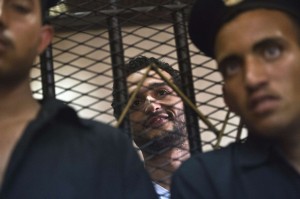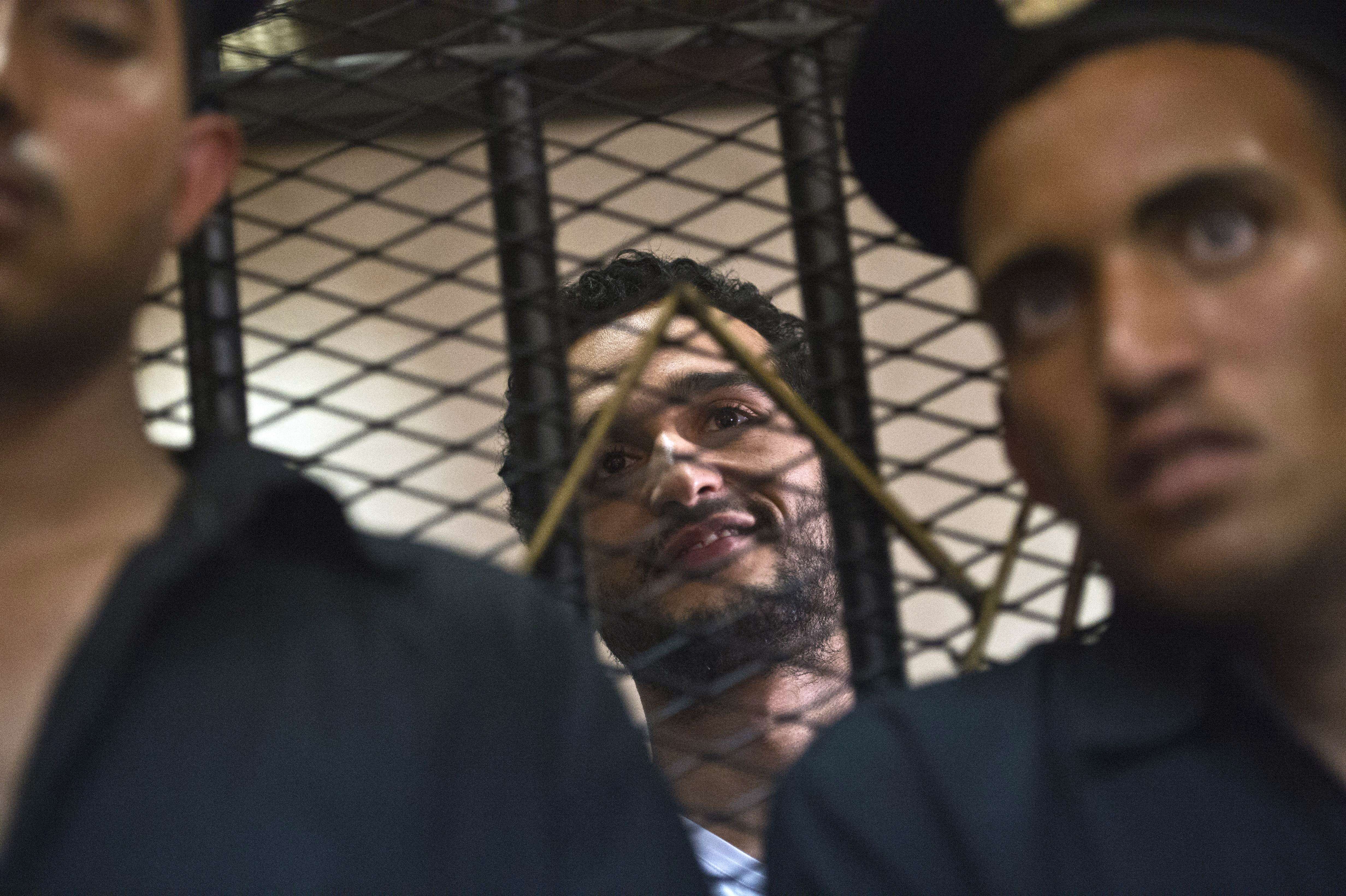
(AFP File Photo\ Khaled Desouki)
A trial involving prominent 6 April member Ahmed Douma and 268 others has been postponed until 11 May.
All 269 defendants are accused of attacking the cabinet building and security personnel as well as burning the Scientific Institute in Cairo in 2011.
The 2011 cabinet clashes ignited when demonstrators organised a sit-in at the cabinet headquarters protesting the appointment of Kamal Al-Ganzouri as prime minister by the Supreme Council of Armed Forces. The military police attempted to disperse the sit-in, resulting in deadly violence which lasted four days.
Douma allegedly was one of the organizers of the sit-in, although he added that he was not present in the area when the violence started.
“Military officers located on the top of the Cabinet Office and People’s Assembly buildings started to throw rocks and marble bricks on us, resulting in many injuries and deaths among the protesters,” Douma said.
Douma was sentenced on 22 December to three years’ hard labour and fined EGP 50,000 alongside Ahmed Maher, co-founder of the 6 April Youth Movement and Mohamed Adel, a co-founder and member of 6 April’s political bureau.
The trio was convicted of protesting without the Ministry of Interior’s approval under the controversial Protest Law, rioting, “thuggery”, using violence against Abdeen Courthouse security personnel, and possessing melee weapons.
The verdict garnered wide criticism from domestic as well as international bodies.
Douma has also been charged with insulting then-president Mohamed Morsi on television, calling him a “criminal, murderer, and a fugitive from justice” on a television programme on the satellite channel Dream, later repeating the same phrase on a separate programme on the same channel.
A Cairo court recently ruled to ban the 6 April organisation, which was a vocal player in the 25 January Revolution, for “espionage” and “activities that distort Egypt’s image”. The court also ruled to shut down the movement’s headquarters.
The United States Department of State also issued a statement Monday criticising the ban on 6 April, saying that such a ruling is “troubling” and opposes basic democratic principles.
The US asked the Egyptian government to allow peaceful political activism “if Egypt’s interim government intends to transition to democracy, as it has committed itself to do.”


